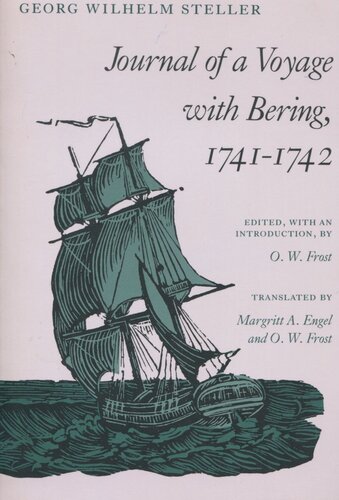

Most ebook files are in PDF format, so you can easily read them using various software such as Foxit Reader or directly on the Google Chrome browser.
Some ebook files are released by publishers in other formats such as .awz, .mobi, .epub, .fb2, etc. You may need to install specific software to read these formats on mobile/PC, such as Calibre.
Please read the tutorial at this link: https://ebookbell.com/faq
We offer FREE conversion to the popular formats you request; however, this may take some time. Therefore, right after payment, please email us, and we will try to provide the service as quickly as possible.
For some exceptional file formats or broken links (if any), please refrain from opening any disputes. Instead, email us first, and we will try to assist within a maximum of 6 hours.
EbookBell Team

5.0
108 reviewsThe European discovery of the northwest coast of America is fully and dramatically recorded in this journal, an invaluable historical and scientific source document. It is also a gripping narrative of human conflict, of nature as the overwhelming adversary, of terror and pain and death, and of final deliverance. In the service of the Russian tsarina, the German naturalist Steller accompanied the great Danish explorer Vitus Bering on a voyage that survived shipwreck and unimaginable hardship to mark the beginning of Alaska's recorded history. This book is a new translation and annotation of Steller's journal of that voyage and the first to be based completely upon a surviving copy of Steller's manuscript dated 1743 (previous translation had been based on a 1793 edition). The journal is the best known of Steller's writings, not so much because of events along the way, or its biological and anthropological observations, not even because of the momentous sight of the Alaskan coast and the subsequent landings, but because of the harrowing events of the return voyage. Thirty-two men of the 78 who set sail died, including Bering himself; 46 survived shipwreck in the winter of 1741-42 on a treeless, uninhabited island, and returned finally to home port on Kamchatka in a small vessel built from timbers of the wrecked ship. On the island, Bering and his lieutenant had become too ill to function and Steller found himself taking the lead in organizing work parties, finding antiscorbutic plant and animal food, nursing the six, and cheering the depressed—actions that kept all from perishing.